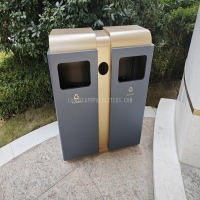Welcome to the website for landscape facilities products and knowledge.
What is the bin’s performance in areas with high levels of ground acidity or alkalinity?
Bins exposed to environments with high ground acidity or alkalinity face unique challenges, primarily related to material degradation and structural integrity. The performance of bins in such conditions largely depends on the materials used in their construction.
For instance, plastic bins made from high-density polyethylene (HDPE) or polypropylene (PP) generally exhibit strong resistance to acidic or alkaline soils. These materials are non-reactive and do not corrode, ensuring long-term durability. However, prolonged exposure to extreme pH levels may cause slight surface weathering over time.
Metal bins, particularly those made from untreated steel or iron, are more susceptible to corrosion in acidic soils due to accelerated oxidation. Galvanized or powder-coated metal bins offer better protection, but regular maintenance is essential to prevent rust and extend lifespan.
In highly alkaline environments, certain metals like aluminum may experience pitting or discoloration, though structural damage is less common compared to acidic conditions. Stainless steel bins perform exceptionally well in both acidic and alkaline soils due to their inherent corrosion-resistant properties.
To optimize bin performance in such areas, consider material selection, protective coatings, and routine inspections. Proper drainage and elevated placement can also minimize direct soil contact, further enhancing longevity.
In summary, bins perform variably in acidic or alkaline grounds, with plastic and stainless steel offering the best resistance. Understanding local soil conditions and choosing the right bin material are key to ensuring durability and functionality.
Related search:

Recommendation
Double-bucket garbage bin, outdoor, metal, multi-color, powder-coated, double-bucket trash can